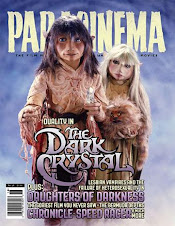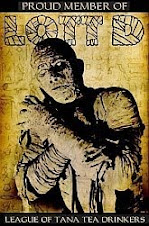In the age of having more streaming services than DVDs on our shelves, many a movie fan can spend more time flipping through titles and reading synopses than actually consuming film. Sometimes, just pick a movie at random and give it a try.
It works.
Quick Plot: Jules and Jackie are celebrating their 1-year wedding anniversary at the secluded lakeside cabin property Jackie's family has owned since her childhood. Everything is scenic and perfectly sexy, though Jules becomes a little unnerved when Jackie's old childhood pal Sarah stops by and calls Jackie "Meghan."
To delve any deeper into a plot synopsis of What Keeps You Alive would be cruel. I went in knowing absolutely nothing about this film, and it paid off tremendously. If you want to watch a skillfully made, genuinely surprising genre film, queue it up on Netflix, stop reading and come back in 100 minutes.
I'll wait.
Welcome back. Let's go deeper.
How good is What Keeps You Alive? IT'S VERY GOOD RIGHT?
Knowing nothing about the plot, I assumed I'd be getting a good ol' fashioned survivalist horror flick. That brilliant act of violence 26 minutes in gave me an audible gasp, flipping my expectations in such a fantastically surprising and effective way.
Granted, there were plenty of clues that Jackie/Meghan wasn't quite right from the beginning. Hannah Emily Anderson keeps popping up in some of my favorite new horror projects (Jigsaw, The Purge television series) and she is riveting here, playing such a terrifyingly controlled psychopath that you almost want her to make it if it could lead to a sequel. Brittany Allen (who also composed the score) seems to feel everything as Jules, which is such a smart contrast to the dangerous blankness that lets Jackie kill without restraint.
What Keeps Us Alive was written and directed by Colin Minihan, formerly one half of The Vicious Brothers who breathed new life into the found footage genre with the exceptional Grave Encounters. While this film has little in common in terms of its style or story, it shares that same spirit of taking a ubiquitous setup and finding a new way in.
It probably goes on a tad too long and doesn't quite nail its pacing in its final act, but boy did I have a good time. It's a solid, tense tale, and I'm excited to see more from all involved.
High Points
THAT 26 MINUTE POINT
Low Points
Checkhov's law of diabetic movie characters is in full force here, and I'll just never quite get over that "I bet that will pay off in a finale" groan when a camera lingers on insulin in the first reel. That being said, What Keeps You Alive does manage to do a pretty effective rug pull on how it times the inevitable reminder
Lessons Learned
You can tell a lot about your romantic partner's nature based on which bird of prey he or she chooses as their double
When covering up bloodstains, remember the cardinal rule: blot, don't scrub
If you require assistance during a dinner party, it's always better to ask before a few bottles of wine have been opened and consumed
Rent/Bury/Buy
Hopefully you've already seen What Keeps You Alive if you've read this far, but if you're one of those weirdos who enjoys spoilers and plunged forward anyway, please watch this film. It's streaming on Netflix JUST FOR YOU.














































